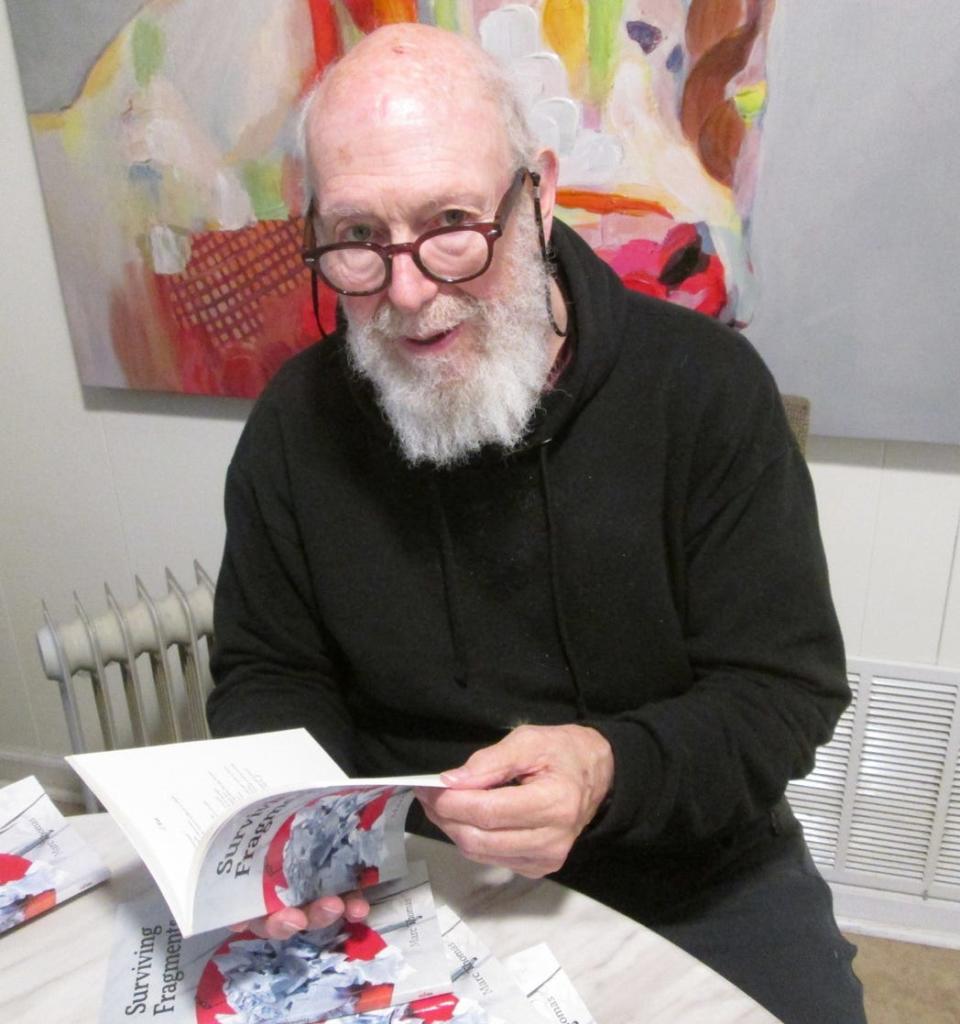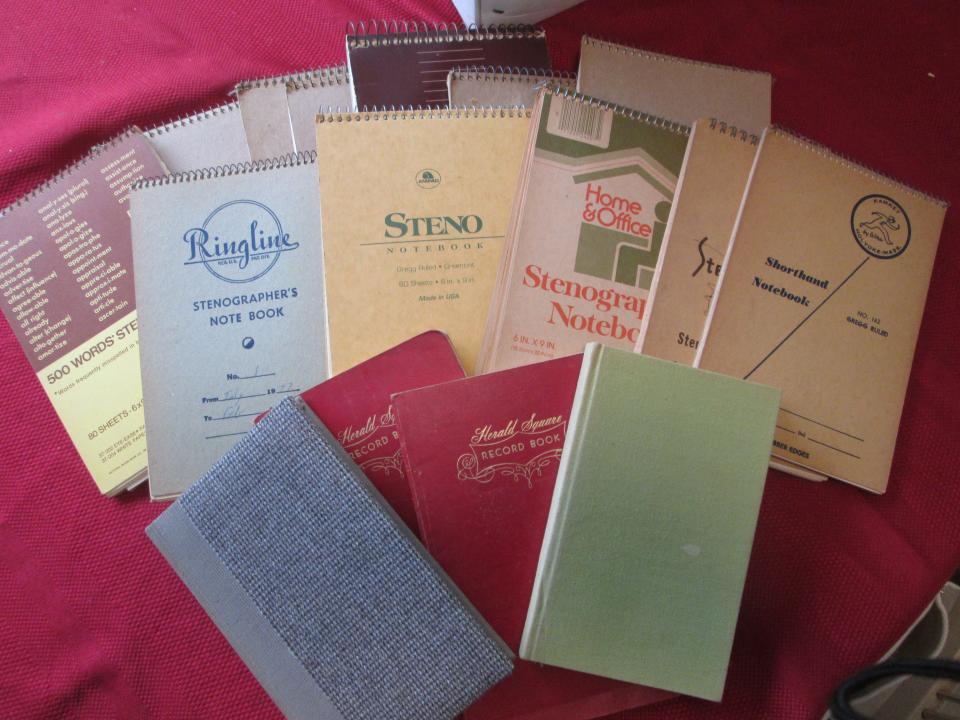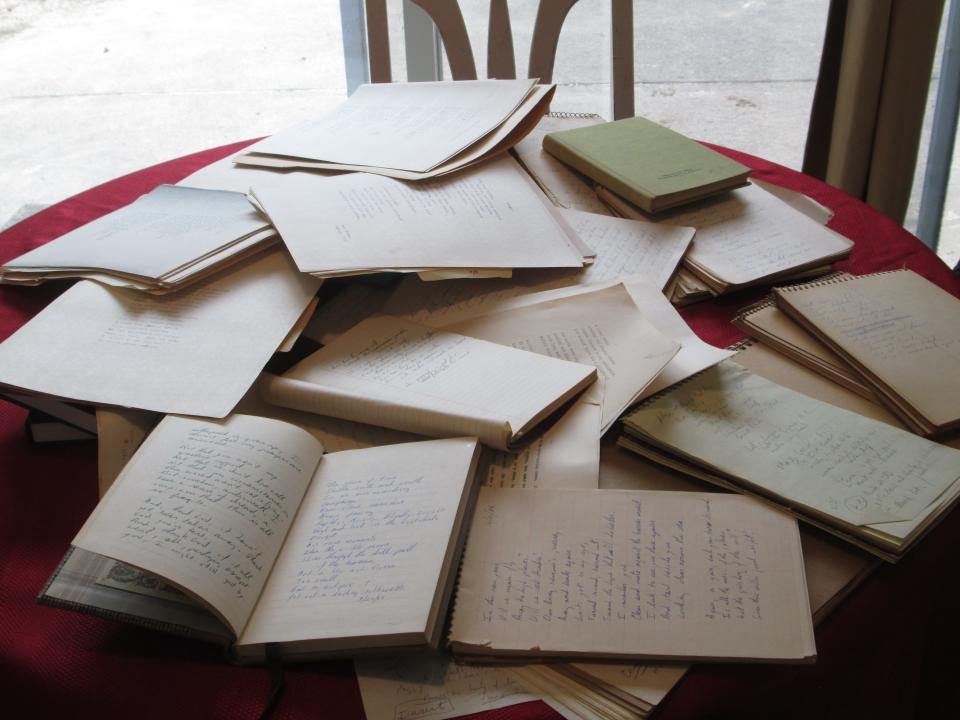Savannah septuagenarian publishes debut book of poetry, 'Surviving Fragments'
“Here we go again/Thinking that walking upright/Opposing our thumbs/Posing our big heads and long limbs/Standing erect above it all/Talking, and talking, and reasoning all our reasons/Removes us from the raw truths”
From “Fancy Apes” by Marc Thomas

Throughout “Surviving Fragments,” 77-year-old poet Marc Thomas’ inaugural release for local publisher Monte Ceceri’s Swanhorse imprint, the author contemplates the self-made distance that exists between humans and animals. Notably, Thomas doesn’t believe such a division actually exists, even if we frequently and stubbornly try to convince ourselves otherwise.
“We tell ourselves stories that are just plain wrong and have great commitments to them,” the soft-spoken poet and avid reader said recently over coffee. “Often for innocent or even pure reasons, but they don’t help us really.”
“We are in nature, even if we decorate it and do weird things with it,” he added later.
Thomas’ insistence that we remain animals in spite of all our trappings comes from a lifetime of experience. It’s a consistent theme across the collection, which includes works created as far back as 1967, as well as more recent compositions.
“To be is to be with nature,” he opines in “My Living Will.” Later, in “Some Poems, Broken in Five Lines,” he laments, “It has been so long/since I had shuffled/through high grass/on a summer morning/I had forgotten the dew.”

The septuagenarian began writing poetry in high school, describing his younger self as a “pathologically shy young man.” He was heavily interested in religion at the time, with both his mother and grandmother having spent time running Sunday schools. He ultimately pursued a master’s degree in theology from the Ecumenical Institute of St. Mary’s Seminary and University in Baltimore.
But while he says he “made good friends” at the school, he also “read a lot more deeply and read a lot more history, and got more distance from my religion as a result,” he said, ultimately leading him to define nature as a sort of deity, the force which returns time and time again in his work.
“I don’t know [what God truly is], so I watch and I wonder,” Thomas explained. “My wife and I go to…church regularly, which means we go out, watch the birds, look for dolphins, things like that.”

“Surviving Fragments” gets its name from the origins of the collection itself, which was culled from stacks of Steno pads, composition notebooks, and dog-eared spiral-bound pages of mysterious origin, 50+ years in the making. In many cases, the poet could no longer remember exactly when and where he’d written the pieces, one of the reasons he elected to organize the collection alphabetically rather than by date.
“I had lots of little notebooks,” he noted, raising a hand about four feet off the ground, as if to imply that’s how big the stack was that he had to work with. “And sometimes I would go through periods of enthusiasm, and I would go through things I had and find some things I liked and type them up.”
“And I moved from place to place, so sometimes things got lost or damaged,” he went on to say. “Sometimes what I have are fragments. Sometimes I have half of a Steno pad, and the other half is missing, damned if I know why.”
In spite of the seemingly arbitrary order of the works, however, and the span of time between the earliest and latest of his creations, the poems are remarkably consistent and accessible, meant for “ordinary readers,” Thomas said. It’s what led me to pick up the book in the first place and to spend time journeying alongside the aged writer via his “Surviving Fragments.”
“Some useful interaction between their mind and mine,” Thomas said of his hopes for what readers might get out of his first published book of poetry, “because reading a book is never perfectly penetrating the intent of the author; that’s always going to remain a mystery. But hopefully the author will have said things that will make you think, make you reflect, maybe amuse you, maybe make you take a little different look at things, maybe just go, ‘Aha, yeah, I remember that!’”
“Surviving Fragments” is available online at montececeri.com/surviving-fragments/, and at select local bookshops, including “The Book Store on the Hill” in Richmond Hill.
The Learning Center, 3025 Bull Street, Savannah, will be hosting an author event with Thomas from 5:30-6:30 p.m., April 25.
This article originally appeared on Savannah Morning News: Savannah septuagenarian publishes debut poetry book Surviving Fragments

